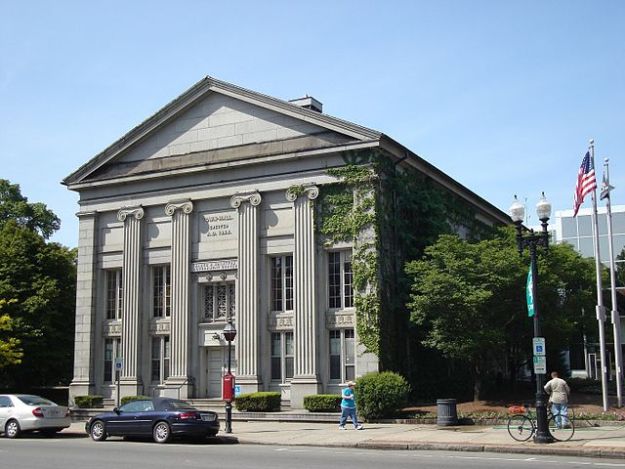
The Malden Evening News. Photo via Wicked Local, from the News’ now-defunct Twitter account.
Two venerable Greater Boston daily newspapers, the Malden Evening News and the Medford Daily Mercury, have ceased publication, according to Wicked Local. In recent years there was little news in either one. But they were good papers under the ownership of the late David Brickman, who bought the Mercury in 1947 and eventually owned both papers as well as a third, the Melrose Evening News.
According to an obituary of Brickman that appeared in The Boston Globe in 1992, he was a driving force behind the state’s open-meeting law and served on the state’s Ethics Commission. He also served in various political capacities under governors Leverett Saltonstall, Christian Herter, John Volpe, Endicott Peabody, Foster Furcolo and Ed King, all while continuing to publish his newspapers. That’s not exactly what we would consider ethical journalism today, but it wasn’t that unusual at the time.
In the early 1980s my wife, Barbara Kennedy, was a freelance photographer for Brickman’s papers. We lived in Medford back then, and the five-days-a-week Mercury was a respectable source of goings-on around the city. Even then, though, there were signs that Brickman was having financial difficulties (freelancers are always the first to know), and he sold his papers in 1989.
According to this well-sourced Wikipedia article, in 1990 Brickman’s successor, Warren Jackson, combined all three papers, as well as an Everett edition of the Malden paper, into one entity known as the Daily News-Mercury. In 1996 the paper was acquired by its last owners, the Horgan family, who revived the separate Malden and Medford nameplates.
When Barbara and I returned to Medford in 2014 after 30 years on the North Shore, we discovered that the Mercury had fallen on hard times, as its contents consisted almost entirely of press releases from Malden. We began reading GateHouse’s Medford Transcript, a Wicked Local weekly, which does a respectable job with its extremely limited staffing.
As sad as it is to see any newspaper go under, perhaps the not-unexpected demise of the Malden and Medford dailies will open up an opportunity for someone to start an independent journalism project to give GateHouse some competition, either in print or online. Medford is already the home to several vibrant online communities and to a website called Top 10 Things to Know in Medford Right Now, which suggests that the demand is there.




